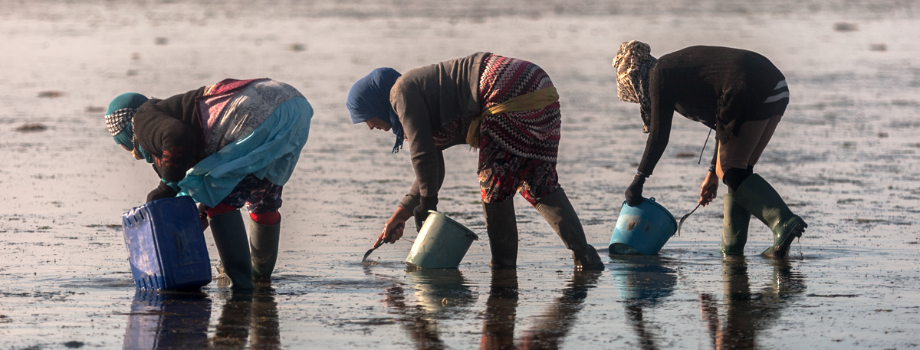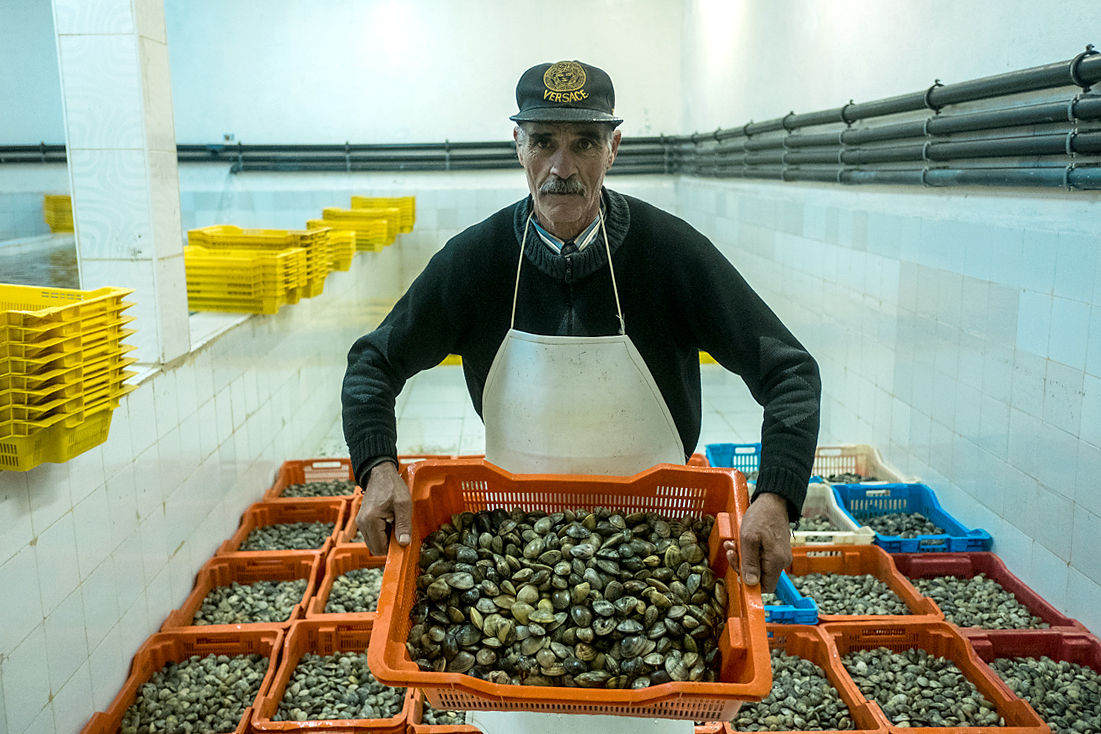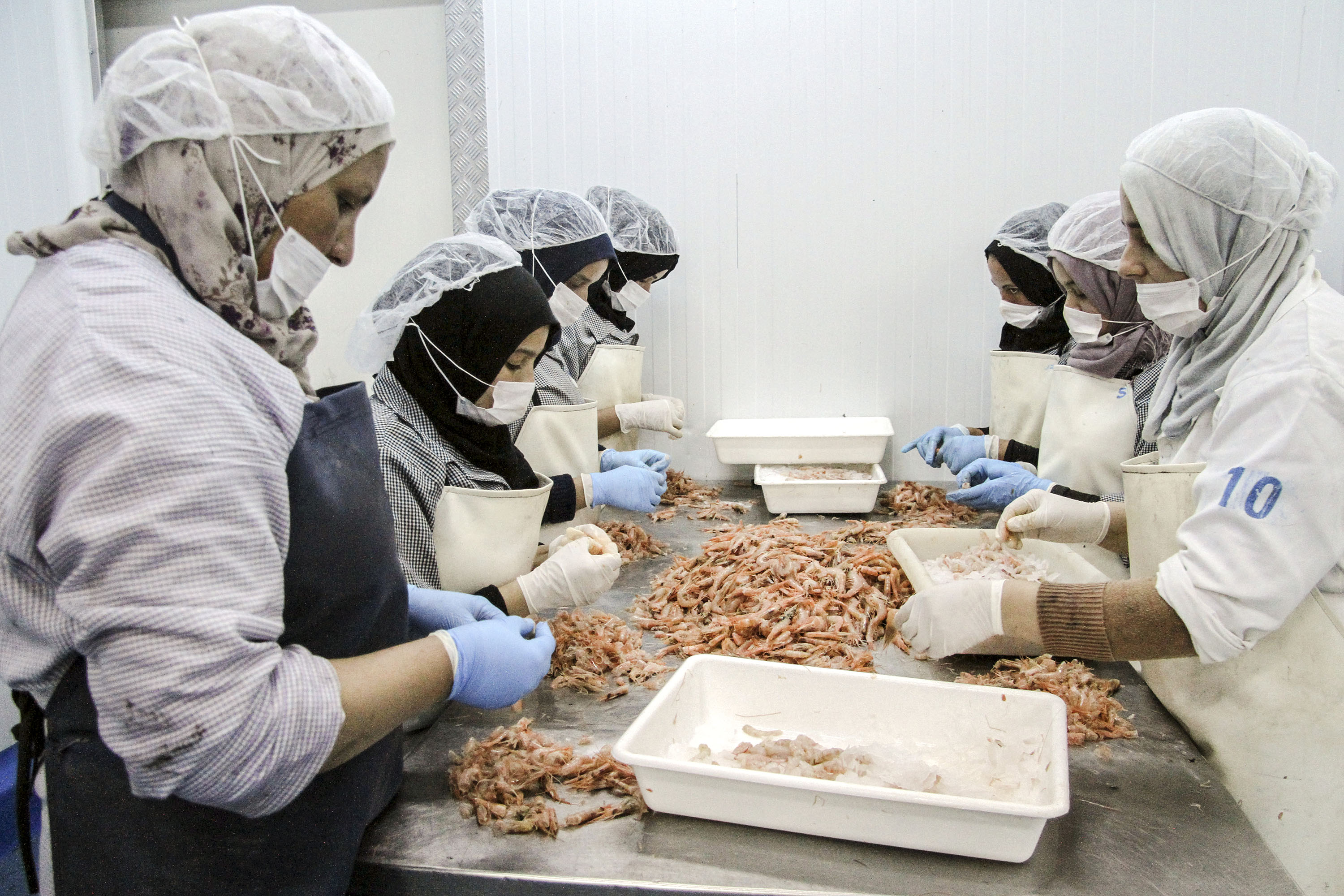
Small-scale fishers have limited access to social protection schemes in Tunisia. Despite the existence of three different social security schemes accessible to fishers, low rates of affiliation among fishers to the National Social Security Fund has drawn attention, especially among small-scale fishers and those exercising on board ships of 5 to 30 gross recorded tonnage. An assessment of the modernization of the social security systems in the fisheries sector carried out by the government in 2009 concluded that the existing options were not attractive for fishers. Fishers’ mobility of inter-segment of the fleet, seasonality of some of the work, difficulties in paying contributions for certain workers, low service provision for the safety regime of low-income workers contributed to low uptake.
Furthermore, a FAO study published in 2019 identified several barriers to accessing social insurance for small-scale fishers (SSF), including inaccessibility of services and inadequacy of contribution payment modalities (e.g., social security offices located far away from the rural locations of small-scale fishers, payment schedules incompatible with the seasonal characteristics of the SSF sector, etc.) and perceived low value of social protection benefits.
In Tunisia, small-scale fishers have, even if limited, access to social protection, benefitting from the Programme National d’Appui aux Familles Necessiteuses (PNAFN), if extreme poor, or contributing to the National Social Security Fund (NSSF) for healthcare and pensions. More recently, Tunisia has additionally established a universal child grant, accessible to all, and other innovative initiatives that are currently being implemented to extend the access to social security to rural women, including gleaners (Ahmini platform).
FAO, in partnership with the General Fisheries Commission for the Mediterranean and the Black Sea (GFCM), has supported the Governments of region, including Tunisia, in developing a regional plan of action for small-scale fisheries, signed in Malta in 2018. Through this plan, the Government of Tunisia is committed to expand the access to social protection to SSF in the country and improve the current provision of social protection benefits, for reducing their level of poverty and vulnerability, as for improving the management of fish stocks. In alignment with this commitment, FAO will provide additional support to the Government of Tunisia for understanding the barriers of access to social protection in the sector, gathering socioeconomic data to reform the social security regime to SSF, improve the coherence between social protection and fisheries policies and programmes for reducing the poverty in the sector and sustaining its development. Furthermore, a specific initiative to support the expansion of the unemployment benefit programme (currently available to the industrial sector) during closed seasons to the SSF sector is foreseen and will be informed by the products under this project.

Work Plan
1. Evidence-based policy support through assessment of enabling frameworks between social protection and fisheries and aquaculture
- Conduct a study on gender-sensitive social protection for artisanal fishers, fish-workers and fish-farmers: A study of the coherence between the fisheries sector and social protection
- To Collect socio-economic data related to the fishing sector, accompanied by field surveys, with a focus on the category of artisanal fishers (boats under 5T) and workers in the artisanal fishing sector
- Carry out a feasibility study identifying quantified solutions to extend social security coverage and quality of benefits to artisanal fishers (boats under 5T( and workers in the artisanal fishing sector
- To carry out and disseminate a study that aims to identify recommendations to improve the sensitivity of the social protection system to the covariate shocks faced by artisanal fishers (boats less than 5T) and workers in the artisanal fishing sector
- Elaborate a benchmarking on the regulations and social protection mechanisms for artisanal fisheries in countries with similar context
2. Technical tools developed to enhance fishers’ capacity to respond to covariate shocks caused by climate, health, socio-economic and environment disasters affecting fishing livelihoods.
- Develop an action plan at the national level to improve existing social protection programs to better target artisanal fishers and workers in the artisanal fishing sector, which specifically takes into account the variabilities of the fishing professions (mobility of workers, seasonality, risks, etc.)
- Support the development of technical tools at the national level to extend social protection coverage to the artisanal fishing sector, with a focus on the category of artisanal fisher (boats under 5T)
3. Strengthened informal social protection providers and mechanisms to increase resilience of fishing households against covariate shocks.
- Design a strategy for implementing revolving fund systems in community-based artisanal fisheries organizations
- Developed the capacity of community-based organizations to implement revolving fund systems through a training workshop for 2 community-based organizations, with a particular focus on women and youth
4. South-South and Triangular Cooperation and dissemination of results to share lessons learned on scaling-up of social protection programmes to respond to covariate shocks in the fisheries sector.
- Exchange of experiences on policy development and implementation of social protection programs in strengthening social protection schemes
- Development and dissemination of lessons learned through a communication strategy

